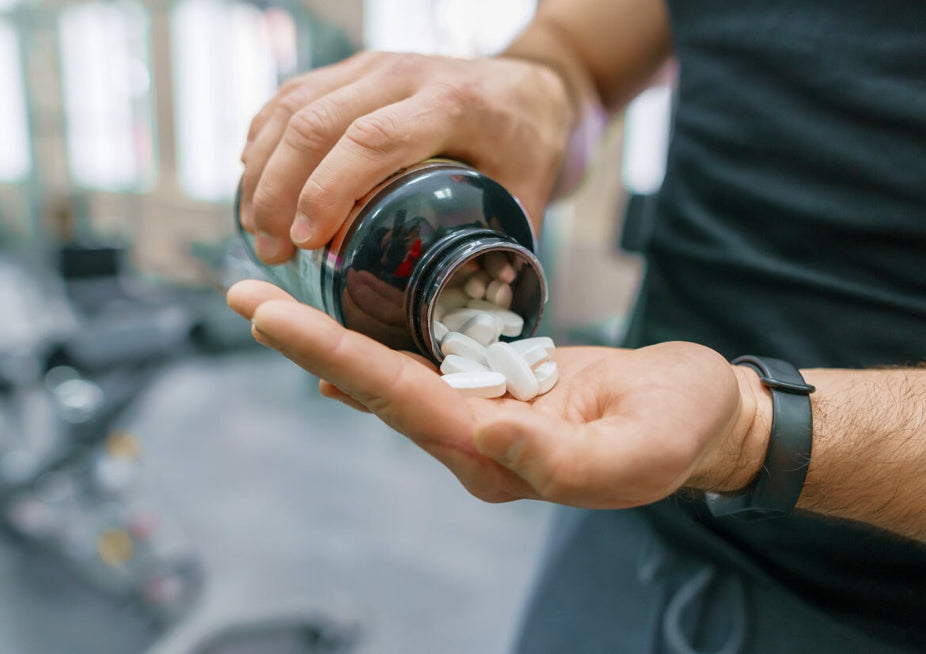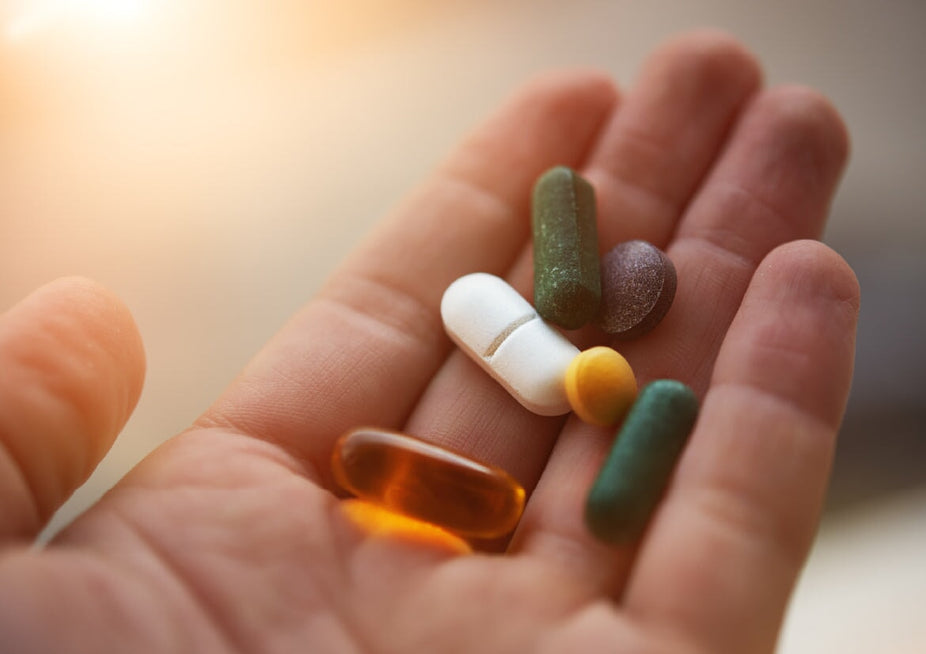Macros vs. Micros – what are they and why are they important to athletes?
We dig deep into the world of sports nutrition and the importance of macros and micros to athletes.
Macronutrients and micronutrients are categories that your dietician or nutritionist may use when talking about your diet. If you’ve ever spoken to anyone about diet in the sports industry, you will likely have heard the words macros. But what are they? And how do they differ from micros?
Think of macros and micros as the fuel and oil of your car. Macronutrients are the fuel – what keeps you going and gives you the energy to move. Micronutrients, on the other hand, are like the oil of a car – essential in keeping the body running smoothly.
In this blog we look at:
- What macronutrients are and why they are beneficial to athletes
- Why are fats essential to athletes?
- What micronutrients are and why do athletes need them
- The importance of monitoring macros and micros in performance
What are macronutrients (macros)?
Macronutrients are the nutrients we need in larger quantities that provide us with energy [1].
Macros include:
These macronutrients are essential as part of everyone’s diet but why are they so important to athletes?
Why are fats essential to athletes?
Fats are often perceived as a food group that you should either cut out or restrict. However, fats are necessary for important bodily functions. And it is recommended that dietary fats make up 20-35% of your diet [2].
Fats help your body absorb important micronutrients such as fat-soluble vitamins. And ensuring these vitamins are absorbed into the body is vital for bodily functions.
If you don’t eat enough fats, these fat-soluble vitamins may not be able to absorb properly and you may be left with a deficiency, which can cause some unwanted symptoms.
Symptoms of a fat-soluble vitamin deficiency include:
- Problems with vision
- Skin irritation
- Bruising easily
- Heavy periods in females
Include certain types of fats in your diet (such as unsaturated fats) to reduce the risk of becoming deficient in these vitamins.
Unsaturated fats include:
- Olive oil
- Avocado
- Nut butter
- Oily fish
Unsaturated fats can also help your body with [2]:
- Blood lipid management
- Maintenance of the endocrine system
- Inflammation control
- Potential body composition and performance benefits
Therefore, cutting out fats from your diet can be detrimental to not only your performance but to your overall health.
However, the term fats often combines what we consider good and bad fat. Though unsaturated fats are important in energy creation and vitamin absorption, fats such as saturated fats and trans fats are not recommended.
The advice for saturated and trans fats is to keep your intake as low as possible, as they can increase cholesterol levels and heighten the risk of diseases such as cardiovascular disease [3]. These fats are often found in ultra-processed foods such as biscuits, crisps, and cakes.
Ensuring your recommended allowance of 30% fats is included in your diet can help you to stay healthy, but also:
- Help with body composition (and get you competition-ready)
- Boost energy levels for better performance
- Enable better recovery times
Why is protein essential to athletes?
Whether you are running, swimming, or strength training – when you’re an athlete you use more energy than the average person and therefore need added nutrients to recover. And protein is the macronutrient the sports world constantly talks about. But why?
Protein plays an important role in recovery. Proteins break down into amino acids that help the body grow and repair – our hair, skin, and muscle are all made up of the protein we eat [4].
What is the recommended amount of protein?
Most adults need around 0.75g of protein per kilo of body weight, per day. For athletes, it is recommended that you eat double this or roughly 30% of your diet [5]. However, on average in the UK, people already eat double the amount they need.
According to the British Heart Foundation, high protein diets are not a problem, as long as they are not meat-heavy – so bacon, chicken, and steak for breakfast, lunch, and dinner can’t be your only sources of protein.
Non-meat sources of protein include [6]:
- Beans and pulses
- Quinoa
- Nuts and seeds
- Quorn
- Tofu
This is not to say you need to cut out meat completely but eating less and getting more varied sources of protein can help boost your protein intake and help aid recovery - resulting in long-term progress and performance.
Why are carbohydrates essential to athletes?
Like fats, carbohydrates are often seen as a food group that should be restricted when it comes to weight loss or sports performance. However, cutting out carbohydrates (carbs) can lead to a variety of unwanted side effects.
Side effects of cutting out carbs include [7]:
- Lack of energy
- Weight gain
- Headaches
- Muscle cramps
All of which can hinder your sports performance. Carbs often have a stigma attached to them of making you feel stodgy or bloated, however, they could be the key to you winning a race or recovering faster.
Carbohydrates are vital in the production of energy and are a key energy source during exercise [8]. If your body doesn’t have the energy to fuel it, your performance is bound to take a hit.
Not only is it important for giving you the energy you need to perform, but it also works alongside protein to help optimise recovery [8].
If the thought of carbs is making you feel bloated, maybe it’s time to mix up your sources – carbs doesn’t always mean bread and pasta.
The best sources of carbohydrates for athletes include [9]:
- Oats
- Lentils
- Nuts
- Blueberries
- Natural yoghurt
- Brown rice
- Sweet potatoes
- Oranges
The amount of carbohydrates in your diet is recommended at roughly 40% of your overall diet. Leaving you with the recommended allowance of your diet as:
- 30% protein
- 30% fats
- 40% carbohydrates
This percentage breakdown is also known as The Zone diet and the theory is that this caloric breakdown keeps your body and mind working at their peak performance throughout the day [5].
The importance of macronutrients in sports performance is that they provide energy and optimise recovery, but how do micronutrients play a part?
What are micronutrients (micros)?
Micronutrients are better known as vitamins and minerals and we get almost all our micronutrients through diet.
They are needed in very small amounts but help almost every process in the body, including:
- Immune function
- Bone health
- Blood clotting
- Energy production
- Fluid balance
Micronutrients are split into four groups [10]:
1. Water-soluble vitamins
The majority of vitamins can be dissolved in water and are often not stored in the body (any excess will be flushed out in urine). These vitamins play an important role in energy production and it is important to get them from a variety of food sources.
Water-soluble vitamins include:
- Vitamin C
- Biotin
- Folate
To ensure these vitamins are absorbed, you need to keep your hydration levels optimal. The NHS recommends that everyone should drink six to eight glasses of fluid a day. However, when exercising you may need to drink more to compensate for any fluid loss through bodily functions such as sweating. In fact, drinking before, during, and after exercise will boost your energy levels, and may help to prevent muscle cramps.
2. Fat-soluble vitamins
Fat-soluble vitamins don’t dissolve in water and are stored in the liver and fatty tissues for future use.
Fat-soluble vitamins play a vital role in the proper function of:
- The immune system
- Bone development
- Vision
- Protection of cells
Fat-soluble vitamins include [11]:
- Vitamin A
- Vitamin D
- Vitamin K
One of the most common deficiencies in the UK is vitamin D. A vitamin D deficiency can cause a variety of symptoms that may have an impact on performance.
3. Macrominerals
Macrominerals are required in higher amounts than trace minerals and can be found in everyday foods and multivitamins.
Macrominerals include:
- Calcium – important in the structure and function of bones
- Magnesium – supports muscle function and helps in energy production
- Sodium – helps with the maintenance of blood pressure
- Potassium – vital in muscle function
Being deficient in any of these macrominerals can affect your training. Ensuring you have the right amount of these minerals can make all the difference in helping you achieve your goals.
4. Trace minerals
Trace minerals are required in small amounts, but that does not mean they aren’t important.
Trace minerals include:
- Iron
- Zinc
- Fluoride
Iron deficiencies are increasingly common and can cause you to feel depleted. If you are short on iron, it can hugely affect your ability to perform at your best. You can read more about the importance of iron in sports performance in our blog.
Why are micronutrients important to athletes?
The micronutrient content of food varies so you need a wide variety of food to meet your requirements. Marginal deficiencies may have little effect on a sedentary person but could have significant effects on an athlete.
It is also possible that regular, intense exercise may increase micronutrient losses from the body, making it important for athletes to meet their micronutrient intake requirement.
If you take part in regular sports, when looking at dietary intake and fuelling, it’s common practice to focus on energy intake and macronutrients. However, despite the fact we need them in smaller amounts compared to macronutrients, micronutrients are vital to our performance and health.
The importance of monitoring macros and micros in performance
The importance of macros and micros is obvious – they help fuel the body, keep it running smoothly, and ensure optimal health and performance. But, how do you know if you are getting the right amounts?
A Sports Performance Blood Test can help you monitor your macro and micro intake and keep you informed on any deficiencies that may be affecting your performance levels.
If you are unsure which test is the right one for you, see our sports performance buying guide, or try our test finder.
References
- Bhf.org.uk. 2022. What are macronutrients?. [online] Available at: <https://www.bhf.org.uk/informationsupport/heart-matters-magazine/nutrition/ask-the-expert/macronutrients> [Accessed 5 May 2022].
- Lowery L. M. (2004). Dietary fat and sports nutrition: a primer. Journal of sports science & medicine, 3(3), 106–117. [Accessed 5 May 2022].
- Eufic.org. 2022. The Functions of Fats in the Body. [online] Available at: <https://www.eufic.org/en/whats-in-food/article/facts-on-fats-dietary-fats-and-health> [Accessed 9 May 2022].
- Bhf.org.uk. 2022. Protein: What you need to know. [online] Available at: <https://www.bhf.org.uk/informationsupport/heart-matters-magazine/nutrition/protein#:~:text=Most%20adults%20need%20around%200.75,the%20palm%20of%20your%20hand.> [Accessed 9 May 2022].
- LIVESTRONG.COM. 2022. Get in the Zone With a 40-30-30 Diet Plan | livestrong. [online] Available at: <https://www.livestrong.com/article/73344-diet-plan/> [Accessed 9 May 2022].
- Bhf.org.uk. 2022. How to get protein without the meat. [online] Available at: <https://www.bhf.org.uk/informationsupport/heart-matters-magazine/nutrition/protein/how-to-get-protein-without-the-meat> [Accessed 9 May 2022].
- Verywell Fit. 2022. What Are the Side Effects of a Low-Carb Diet?. [online] Available at: <https://www.verywellfit.com/low-carb-diet-side-effects-5204498> [Accessed 9 May 2022].
- Wildman, R., Kerksick, C. and Campbell, B., 2010. Carbohydrates, Physical Training, and Sport Performance. Strength & Conditioning Journal, 32(1), pp.21-29.
- ACTIVE.com. 2022. Top 10 Carbs Athletes Should Love. [online] Available at: <https://www.active.com/food-and-nutrition/articles/top-10-carbs-athletes-should-love/slide-10> [Accessed 9 May 2022].
- BYJUS. 2022. What are Micronutrients? Types, Deficiencies, Micronutrients in Plants. [online] Available at: <https://byjus.com/biology/micronutrients/> [Accessed 9 May 2022].
- National Research Council (US) Committee on Diet and Health. Diet and Health: Implications for Reducing Chronic Disease Risk. [online] Available at: <https://www.ncbi.nlm.nih.gov/books/NBK218749/> [Accessed 9 May 2022].
Related tests
Are you looking to transform your body through diet and exercise and track your progress along the way?
Our Ultimate Blood Test is designed for those who want to take their health and fitness to the next level — whether you're an athlete, biohacker, or simply someone who's serious about...
- Results estimated in 3 working days
- 56 biomarkers
Venous collection
Select testTake control of your heart health with our at-home Cholesterol Blood Test
- Results estimated in 2 working days
- 6 biomarkers
Finger-prick or Venous collection
Select test







